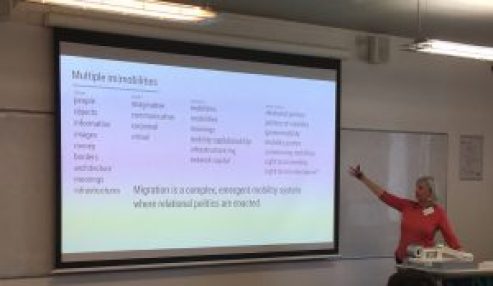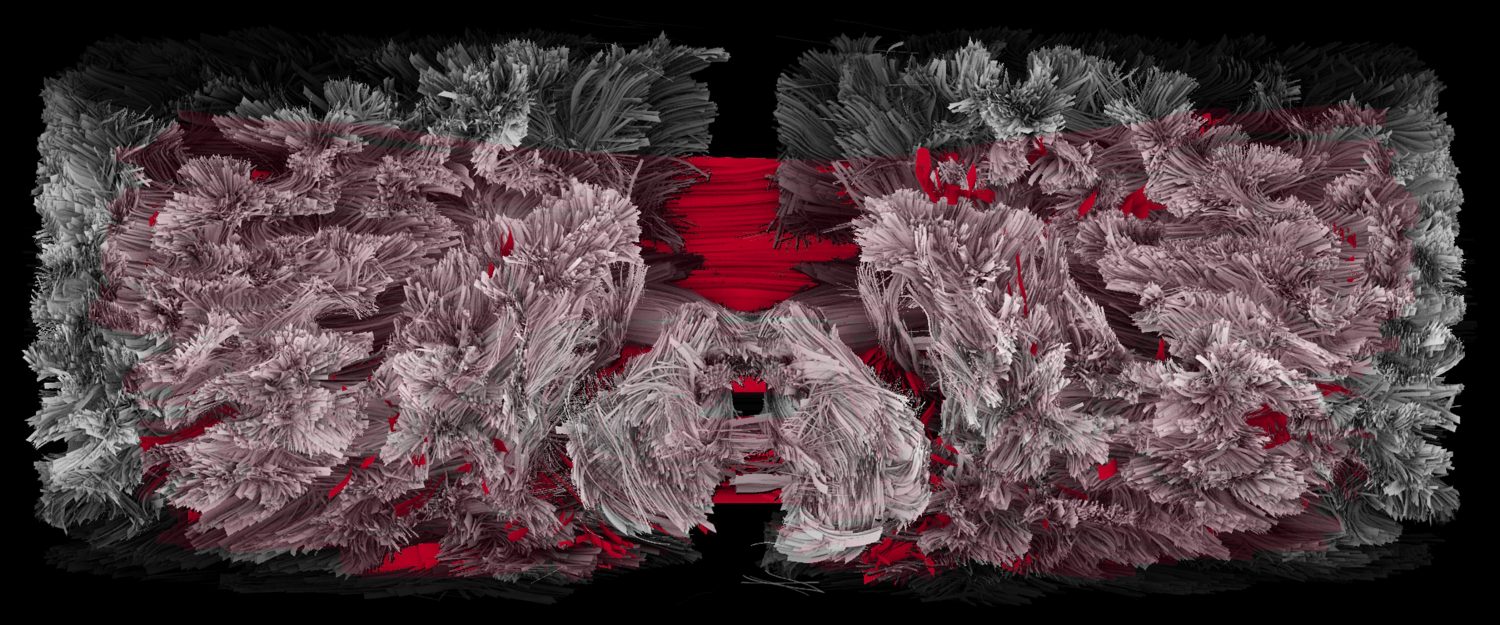The Doctors within Borders project held its first workshop on Friday 10th January 2020 at Lancaster University. Entitled “Healthcare, Mobilities and National Healthcare Systems,” the event brought together an international group of social scientists, healthcare practitioners and activists to explore shared interests in migration, borders, healthcare and mobility. The day’s events were situated in the context of a widening gap between the idea of health as a human right and the daily difficulties faced by many migrants, asylum seekers and people whose status is legally or socially unsettled in claiming that right. Doctors within Borders seeks to challenge this unequal distribution of healthcare as well as document its causes and consequences, particularly as they relate to mobility and migration. To this end, the workshop launched a new research agenda in health and mobilities and brought together insights from research on migration, health activism and the practice of delivering care.

1. Bordering
The first set of contributions explored healthcare systems as sites of ‘everyday bordering’ – that is, spaces beyond state boundaries (banks, the DVLA, rental agencies) that are increasingly penetrated by bordering practices like visa checks.
Kathryn Cassidy discussed the UK government’s Hostile Environment policies and the adoption of immigration checks, eligibility criteria and upfront charging in the National Health Service. She described the state discourses that accompany and legitimate these practices as ‘appeals to order’ and enjoined activist scholars to develop counter-narratives of ‘disorder’ that can make this discursive violence visible.
Visibility was also a theme in Gwyneth Lonergan’s genealogy of NHS policies surrounding the entitlement of “temporary migrants” (i.e. non-EEA nationals in the UK for a time-limited period often between 6 months and 5 years) to different levels of healthcare treatment. Lonergan situated the tension between official documents that recognize the legal right of many “temporary migrants” to free healthcare, and Home Office policies and practices which seek to make such distinctions invisible, in the discursive and cultural framing of the NHS as a peculiarly British institution.
Jessica Potter further explored these practices by mapping the emotional and affective borderwork generated at the intersection of hostile environment policies, healthcare worker resistance and migrant patient appeals for treatment and care. Potter’s fieldwork captures the taxing and emotional nature of staff resistance and illustrates that the negative emotions and affective states these policies are designed to generate do not just target patients denied or excluded from care but also operate as a disciplining tool that provides an internalized check on resistance.
Finally, Pawel Lewicki’s presentation focused on the experience of Polish HIV positive migrants with complex needs in Berlin as they navigate and seek to claim entitlements or access treatment from different health and social welfare institutions. Lewicki’s presentation emphasized the uneven grid of power relationships that structure his informants’ trajectory through these different institutions as well as the shifting conditions under which these varied sites present differential opportunities for legal recognition, health and social care entitlements and bureaucratic closure.
The contributions from this session emphasized the legal and emotional ambiguities generated by the expansion of bordering practices in the healthcare realm and asked whether in the context of this shifting terrain resistance could be understood as a right, as well as a duty.
2. Activism
The second theme focused on the experiences and strategies of healthcare activists in the context of the politicization of mobility.
 Kitty Worthington spoke about the history of Docs Not Cops noting that there has been a long history of activism and resistance to charging considerations in the NHS, virtually from when they were first discussed in the late 1970s. Today official narratives seek to position charging mechanisms and visa checks as legitimate responses to the reality of healthcare rationing and the threat of NHS privatization. In contrast, Docs Not Cops works to advance a collective rights approach to providing care grounded in the insight that what ties us all together is not the colour of our passports but the fact that we are all patients.
Kitty Worthington spoke about the history of Docs Not Cops noting that there has been a long history of activism and resistance to charging considerations in the NHS, virtually from when they were first discussed in the late 1970s. Today official narratives seek to position charging mechanisms and visa checks as legitimate responses to the reality of healthcare rationing and the threat of NHS privatization. In contrast, Docs Not Cops works to advance a collective rights approach to providing care grounded in the insight that what ties us all together is not the colour of our passports but the fact that we are all patients.
Piyush Pushkar’s presentation spoke to the strategic trade-offs between different types of activist tactics pursued by the group MedAct. He described a clinician-led model of evidence-based activism the group pioneered in the context of the Home Office’s hostile environment policies. Rather than focusing on rebalancing unequal power relations between doctors and patients (the goal of evidence-based activism) Pushkar argued for a more politically inflected approach which mobilized clinical expertise to challenge and rebalance unequal power relations within society through building evidence about harmful policies, disseminating it and collectively campaigning against it.
Agnieszka Kosowicz’s presentation focused on the work of Polish Migration Forum, a Warsaw based NGO that supports the integration of migrants and refugees in Poland. Echoing some of the other presentations, Kosowicz spoke to the difficulties in providing support for migrants and refugees in the context of a national healthcare system in crisis which makes few accommodations (e.g., mediators and translators) for cultural differences in migrant health experience and care expectations.
Finally, Souad Osseiran’s presentation focused on the spatial complexities and bureaucratic ambiguities faced by Syrian refugees in accessing the Turkish healthcare system. Although as “persons under temporary protection” Syrian refugees are entitled to the same healthcare access as citizens, that access is spatially bounded and imposes a stark choice: it is contingent on seeking care only where one is registered irrespective of the desire or need to move for family or work.
Taken together, the contributions in this session highlighted the complexities of navigating between collective and individual acts of resistance, as well as the deliberate bureaucratic, legal and institutional uncertainty directed at activist staff organizing campaigns to counter exclusionary healthcare practices and procedures.
3. Care
The final set of presentations focused on the experiences of practitioners delivering healthcare in the context of personal, systemic and environmental crisis.
Helen Barclay, Helen Lincoln and Beth Kirby described their experiences providing primary care services at Bevan Healthcare Practice, a social enterprise based in Bradford and Leeds that primarily deals with vulnerable and displaced mobile populations (the homeless, refugees and migrants). They emphasized that primary care services are only the first tier of a dynamic and responsive service which provides outreach in the form of a street medicine team, intermediate care beds for those unstably housed or homeless and a wellbeing center which offers, among other things, cooking and English classes.
Deniz Mardin’s paper on Syrian refugees accessing healthcare in Istanbul also discussed the complexities of providing primary care services in the context of mobile populations. Echoing Osserian’s description of the registration system under which migrants and refugees can claim healthcare entitlement only where they have been registered, Mardin analyzed the health system’s incapacity to cope with the inevitable fact that most will leave these satellite cities to find work in the metropole.
Finally, Stephanie Sodero analyzed the current and future disruption that environmental crises pose for vital mobilities—the mobile health infrastructures (medical supply chains, blood banks, transplant transport units) which underpin so much of primary and emergency interventions. Sodero argued that a focus on these vital mobilities underscores the vulnerability to disorder of most national healthcare systems, premised as they are on an increasingly untenable paradigm of order and stability (e.g. secure transnational supply infrastructures and settled domestic populations).
The final set of papers neatly capped the day’s presentations by shifting from a contemporary discussion about healthcare bordering practices, and collective action against them, to a question of how such policies and care solutions will fare under strain from an increasingly uncertain future. To what extent should healthcare systems expect and prepare for the inevitable migration and mobility associated with future political, economic and climate crises? Perhaps more importantly, what might a national healthcare system that takes such wholly predictable eventualities seriously look like?
Global Village Café, a Lancaster-based social enterprise that works with migrants and refugees to provide them training and experience in the service industry catered lunch.

The afternoon sessions featured an inspiring keynote on Human Mobilities on the Borderline by Professor Monika Büscher (Centre for Mobilities Research). Drawing on her work on disaster mobilities and climate change, Büscher enjoined us think in terms of multiple im/mobilities that pervade the contexts of our research. The physical movement of persons and objects across and within borders, like the mass transfer of data, money and communications are mobile phenomena that cannot be contained, even as states deploy increasingly deterritorialized means of command and control. This is the context that frames healthcare today, demanding radically creative and mobile methodological approaches that dispense with the presumption of static systems. This insight was taken up in the subsequent series of group work sessions focused on mobile methods and the future direction of the Doctors within Borders network.

By Luca Follis
Find out more:
See tweets about the workshop at #DwBW1
Read the Programme for Workshop 1
Download a collection of Working Papers from the event

